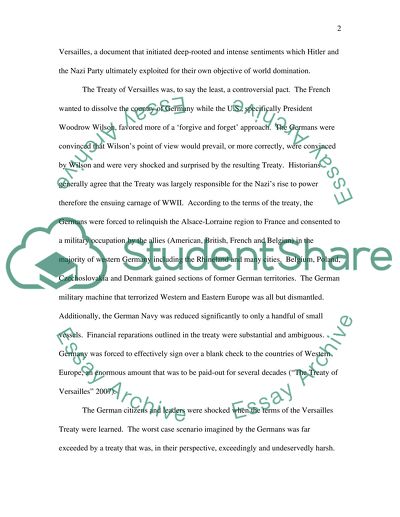Cite this document
(“The Treaty of Versailles Made World War II Inevitable Essay”, n.d.)
Retrieved from https://studentshare.org/military/1420626-the-treaty-of-versailles-made-world-war-ii-inevitable
Retrieved from https://studentshare.org/military/1420626-the-treaty-of-versailles-made-world-war-ii-inevitable
(The Treaty of Versailles Made World War II Inevitable Essay)
https://studentshare.org/military/1420626-the-treaty-of-versailles-made-world-war-ii-inevitable.
https://studentshare.org/military/1420626-the-treaty-of-versailles-made-world-war-ii-inevitable.
“The Treaty of Versailles Made World War II Inevitable Essay”, n.d. https://studentshare.org/military/1420626-the-treaty-of-versailles-made-world-war-ii-inevitable.


